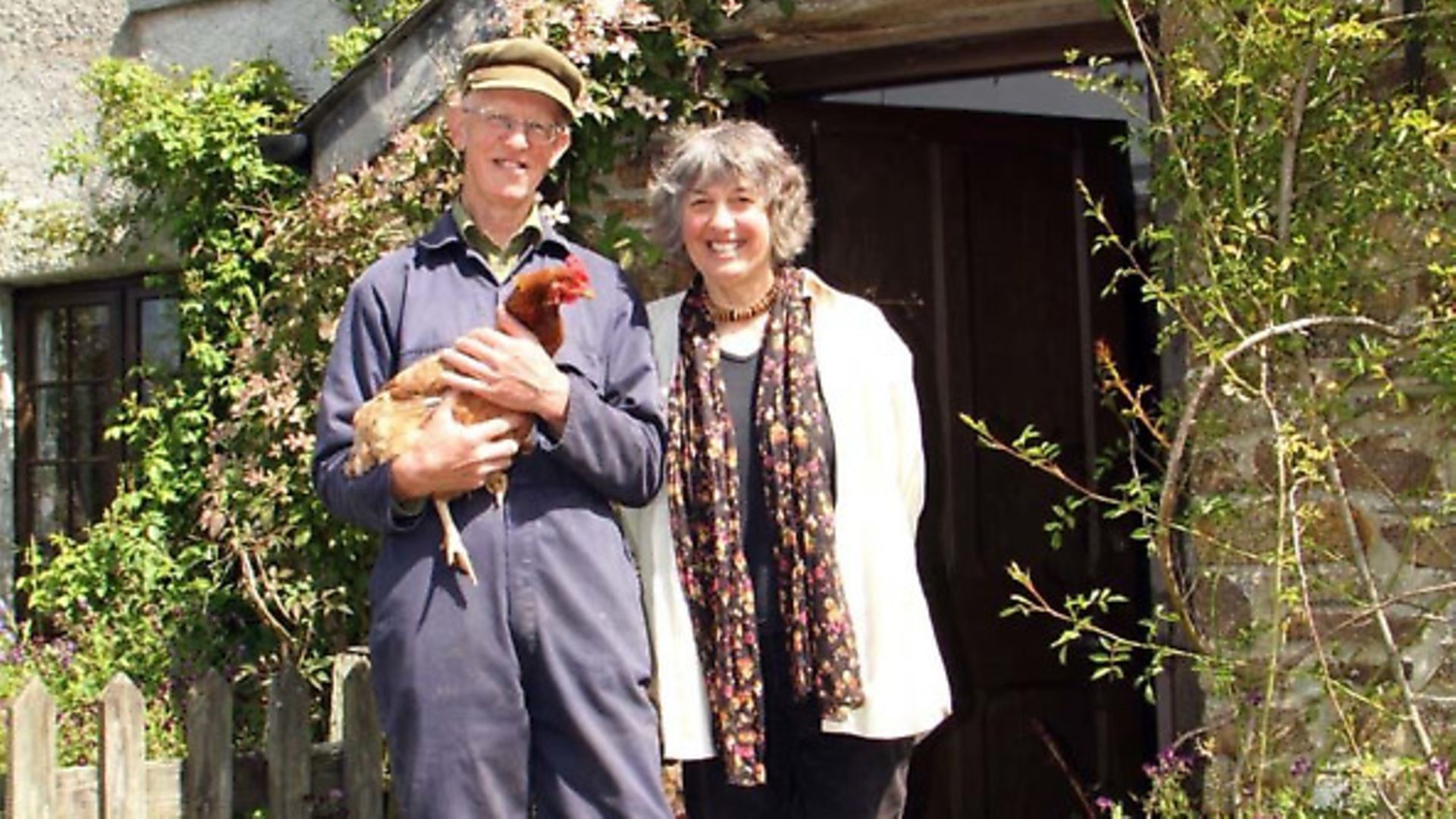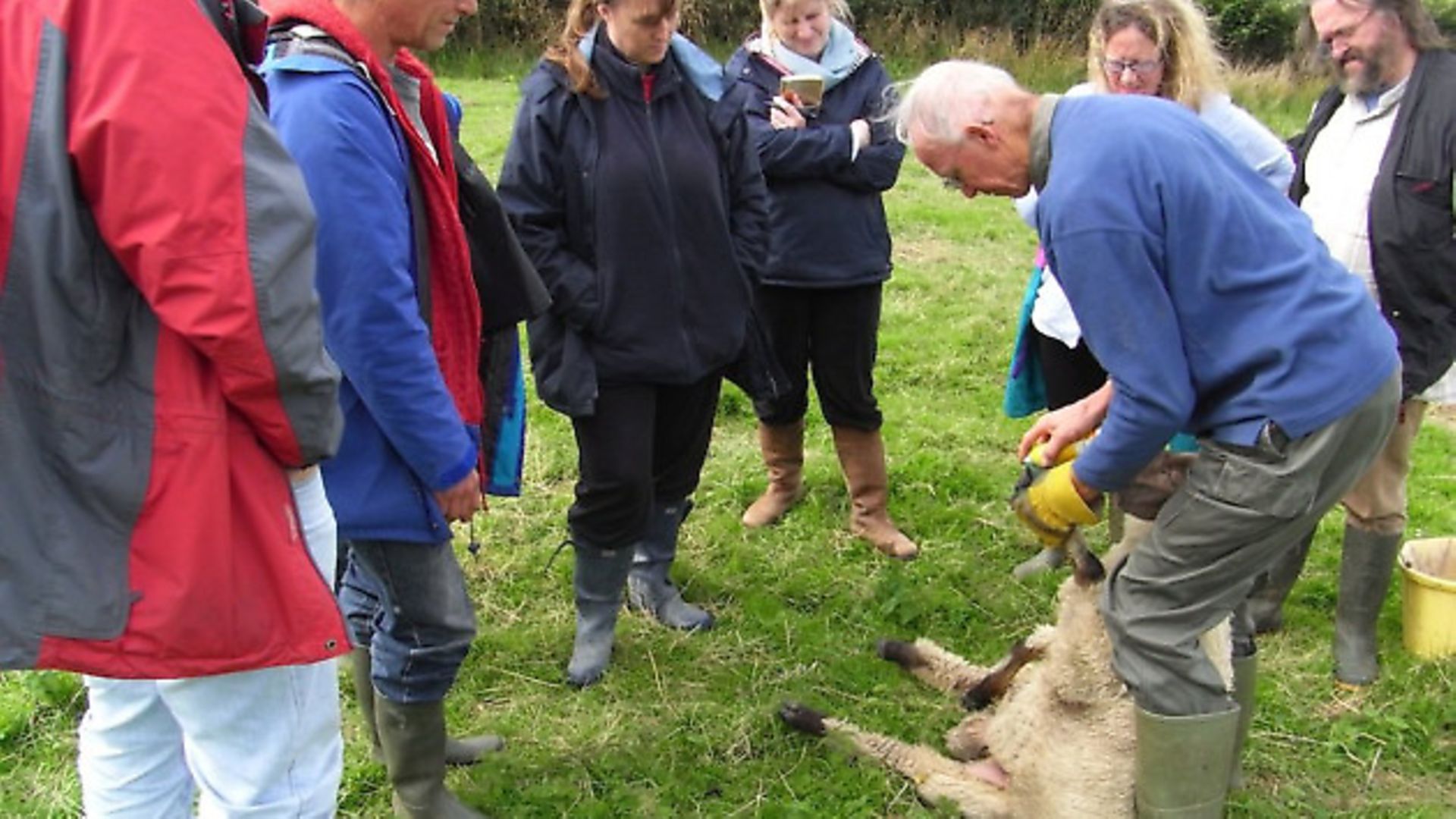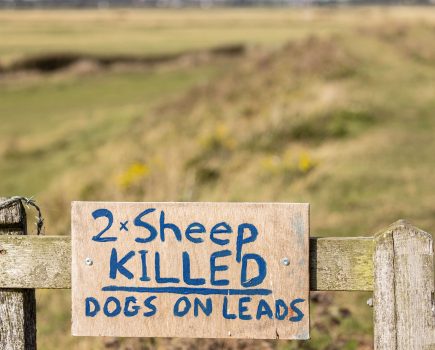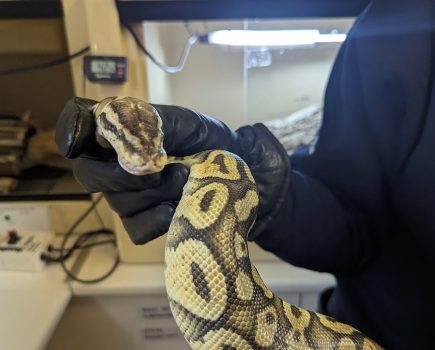Alan Beat has been a regular contributor to this magazine for 26 years. Now he is calling it a day. Here is his reflective last article…

As my 65th birthday approached two years back, I began to ponder the question of retirement. Do smallholders ever retire?
We have known smallholders to sell everything upon reaching this milestone before moving to a bungalow in the nearest town or, less dramatically, to sell their livestock and rent out the land, enabling them to at least continue living in their home. Others simply carry on much as before, gradually slowing down as advancing age starts to restrict what is possible. We have taught quite a few students on our courses whose retirement plan is to move from other work into smallholding!
I certainly didn’t see myself as ‘retiring’ in the sense of stopping work and moving on to enjoy a very different life of leisure. For me, smallholding has always blurred those artificial divisions between work and play, since I enjoy nearly everything we do and choose to do it, often seven days a week and throughout the year; so it wasn’t a matter of quitting a job I disliked. On the contrary, Rosie and I found it difficult to imagine living in any other way; so I made no immediate plans and just sailed past the birthday to continue much as before. What could possibly go wrong?
When we first moved here almost 30 years ago, one of the main drivers was to produce our own organic food. This wasn’t a matter of economics, it was just that the market for organic food was virtually non-existent; you couldn’t buy it, so you had to grow your own. Today organic food is widely available, admittedly at a price.
Our grown-up children, Katie and Martin, have moved out to live independently. I was quite surprised at the effect this had on me personally – not exactly ‘empty nest syndrome’, but it did reduce my motivation to provide for the family, especially in putting food on the table. Then from ‘that’ birthday onwards, my uncertain income from self-employment was suddenly boosted by regular pension payments.
The net effect of these changes is that I don’t actually need to run a smallholding any more, and the personal rewards of running one are somewhat diminished.
Around the time of ‘that’ birthday, our 10-year contract for Countryside Stewardship expired, so we negotiated a new Higher Level Stewardship agreement. To cut a long story short, under this contract we aim to restore most of our permanent grassland to the wild flower meadows they once were; and future management requires grazing by cattle in preference to sheep. This means that our sheep flock, which has gradually reduced through natural wastage over the last few years, may soon be limited to a few favourite ewes, or even disappear altogether, while our neighbour rents more acreage for his beef cattle.

Everything on hold…
You can see the direction in which these changes were drifting . . . .then, out of the blue, Rosie was diagnosed with breast cancer. The treatment regime was punishing: surgery, chemotherapy, radiotherapy. You cannot know what this is like until you experience it close up.
Everything else was put on hold. I just couldn’t write at this time but Simon McEwan, editor of CS, kindly put my regular feature on hold until I felt able to continue. Focused on Rosie’s needs, I left the smallholding ticking over with less than usual attention – and that soon showed. A fox broke into the duck house and killed our flock of call ducks, all 26 of them in one night. It was my responsibility: I hadn’t noticed the weakness developing in a rusting wire mesh panel. As lambing time approached, two first-time ewes of our own breeding died suddenly without my noticing any warning sign. A pig breeding friend rang to offer the five or six weaners that I usually buy from him each spring to fatten, but with multiple hospital visits in prospect, I declined. It was the same for day-old chicks that we regularly rear as table chickens; so, within a short space of time, our livestock were limited to a reduced sheep flock, a few laying hens, and the neighbour’s cattle.
Rosie has remained bravely positive throughout her ordeal and is now recovering. NHS staff, family and friends have all been wonderfully supportive, but we’ve had to break with established routines, cut down on day-to-day activities, and postpone building and maintenance projects. We are taking time to think, to re-assess what we do, and plan for a future that doesn’t feel quite the same as it did before.
Standing down
We are not yet sure where this process will take us but one decision has been made: I am standing down from writing a regular feature for CS. After 26 years, it must be time to make way for younger writers. My son Martin, and daughter Katie, both contribute to the magazine occasionally so I am leaving the family tradition in good hands!
I’d like to thank Simon McEwan for his unwavering support and friendship over the years that we have worked together. He has stamped his own high standards of professionalism on the magazine, and it is to his credit that CS continues to thrive at a time when many paper-based periodicals are struggling financially.
I’d also like to thank you, the readers, for your letters, emails, phone calls and conversations that have persuaded me to continue writing all these years! It’s been a pleasure to share my enthusiasm for smallholding with you in these pages; and I wish you the joy of it.
Image(s) provided by:
Archant
Archant







